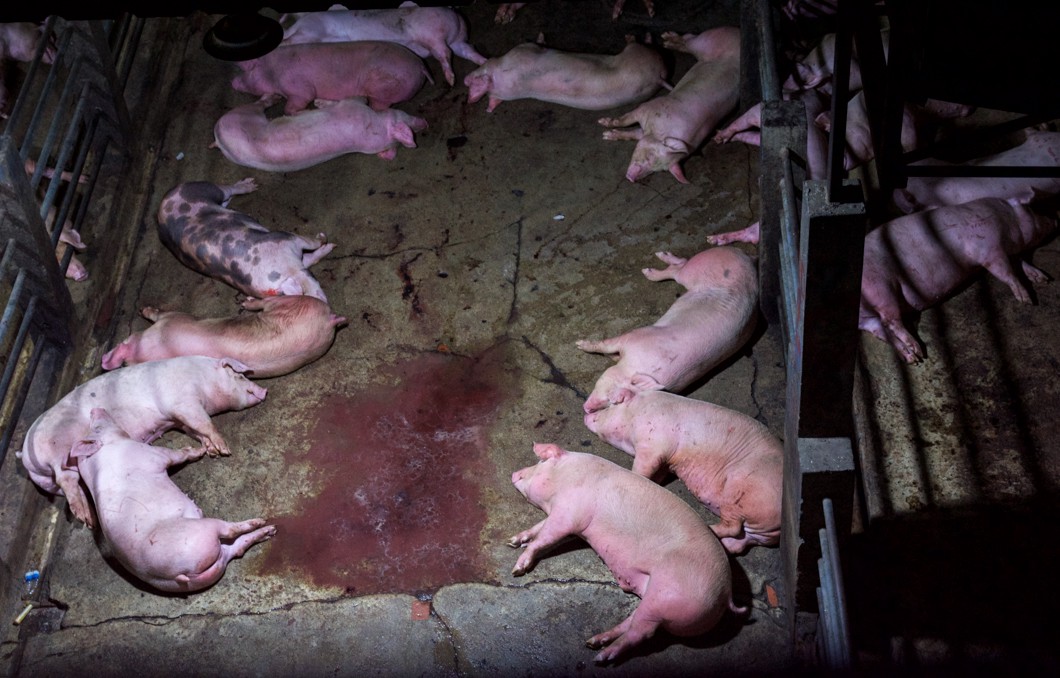As society grapples with the complex ethical implications of consuming animal products, the question arises: Is killing a pig for food animal cruelty? This inquiry transcends mere dietary preferences; it probes into our moral frameworks, societal norms, and the intricate interface between human需求与动物福祉。通过探讨养猪业的伦理实践以及相关的社会因素,本质上可以更清晰地划分我们行为的事实和价值观。
Pigs, intelligent creatures capable of forming relationships and exhibiting complex behaviors, have captured humanity’s fascination for millennia. Their undeniable cognitive abilities—such as problem-solving and social interaction—often lead people to perceive them as more than mere livestock. This recognition of their sentience challenges traditional farming paradigms and raises an important ethical dilemma regarding the practices surrounding their rearing and slaughter.
The reality of commercial pig farming is marred by a rich tapestry of ethical concerns. Factory farming, where pigs are often confined in overcrowded conditions, starkly contrasts with the ideals of humane treatment. In these environments, pigs frequently suffer from extreme stress, lack of social interaction, and health complications due to overcrowding and unsanitary conditions. Such realities prompt the inquiry: Does the method of rearing these animals justify the eventual slaughter for human consumption?
To address the central question of cruelty, it is imperative to consider the broader spectrum of animal husbandry practices. Ethical farming practices, sometimes referred to as regenerative farming, prioritize the well-being of the animals while maintaining sustainable agricultural methods. This approach is grounded in several principles, including proper housing, access to outdoor spaces, and practices that encourage natural behaviors. Adopting these practices can minimize the stress and suffering experienced by pigs, aligning the farming process more closely with humane standards.
As we delve into ethical farming, it is crucial to distinguish between different types of pig farming. In traditional small-scale operations, pigs may be raised in environments where they have time to root, explore, and engage in natural behaviors. These farms often emphasize the importance of animal welfare and environmental sustainability. In contrast, intensive farming practices focus primarily on productivity, often disregarding the intrinsic needs of the animals involved. The stark contrast between these two frameworks presents profound implications for the ethicality of killing pigs for food.
It is also essential to examine consumer choices within this context. Growing awareness surrounding animal welfare has led many consumers to seek out sustainably sourced and ethically raised animal products. As demand for humane treatment increases, farmers are adapting their practices, leading to the rise of pasture-raised, free-range, and organic sources of meat. This shift indicates a collective societal reevaluation of the ethics involved in animal agriculture, where consumer demand directly influences farming methodologies.
In examining the practice of slaughter itself, we must consider the methods employed and the psychological impact on both animals and workers. The standards of humane slaughter seek to minimize suffering, employing methods that render the animal unconscious swiftly before any punitive actions are taken. However, the efficacy of these methods is often contingent upon stringent regulations and vigilant oversight—something that is not always consistently applied in commercial contexts. Ethical questions then arise concerning the necessity of slaughter, particularly within a society capable of producing protein through plant-based alternatives.
Furthermore, integrating animal rights considerations into public discourse is essential for advancing ethical farming practices. The conversation often centers on the perspectives of individuals who advocate for animal welfare or opt for veganism as a reaction against conventional farming. This movement—a viable segment within broader vegetarian and vegan ideologies—aims to reconcile human dietary needs with ethical considerations, appealing to empathetic principles that resonate with many consumers.
Undoubtedly, it is vital to confront the psychological dissonance that arises from enjoying pork products while acknowledging the associated suffering. As individuals seek clarity in their ethical stance, the extension of compassion towards pigs often necessitates confronting difficult questions regarding dietary preferences. The emotional engagement with these creatures leads to a nuanced perception of their lives, compelling many to choose alternative protein sources or to advocate more vigorously for humane husbandry.
Ultimately, the question, “Is killing a pig for food animal cruelty?” transcends a simple binary of yes or no; it requires a deep engagement with the principles of ethics, sustainability, and the societal shifts shaping our food systems. Drawing from varied perspectives, it becomes evident that more humane methods of farming and slaughter can fulfill dietary demands while upholding moral responsibilities towards sentient beings.
As modern consumers become more discerning, and as the demand for ethically raised meat continues to proliferate, the collective drive for change can steer the farming industry towards greater accountability and compassion. The dialogue surrounding these issues is integral in shaping a future where animal welfare considerations are enshrined within our food systems, respectful of the lives of pigs and the ecosystems they inhabit. By fostering this awareness and advocacy, society can navigate the murky waters of ethics in agriculture, leading to a more just, responsible, and sustainable path forward.








